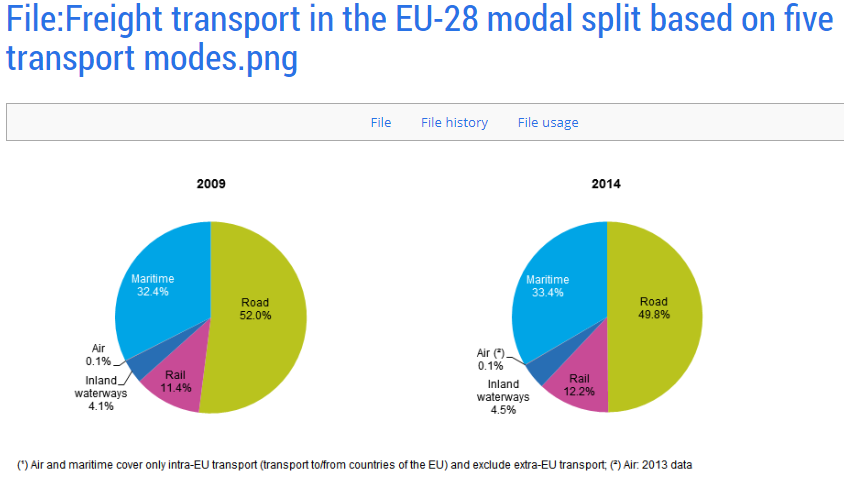More charges for road freight one step closer with vote on EC proposal

The proposal of the European Commission to charge the transport of freight per road on a more equal basis with rail is one step closer with the approval by the European Parliament Transport and Tourism Committee of most amendments. This is an important step for the rail freight sector, which has pled for a level playing field for years.
Road charges are currently only applied to trucks on about 20-25 per cent of the European network. This is a point of frustration for the rail freight industry, as railway operators pay distance-based charges on all railroads. The discrepancy leads to unfair competition, critics belief. The rail freight industry has pled for a level playing field in order to enable an increase of the market share of freight transport by rail. This share was 12.3 per cent in 2015, only a slight increase compared to 11.4 per cent in 2009.

User- and polluter-pays principles
The European Commission proposed to amend the directive on 31 May 2017. With the vote of the Parliament, the principles of user- and polluter-pays are likely to be applied more widely, explained the Community of European Railway and Infrastructure Companies (CER).While certain discounts and reductions are debatable, road charging for freight transport would be made more consistent by including goods vans. The polluter-pays principle, notably the removal of exemptions and the introduction of minimum charging values, would not only help protect the environment but also lead to improved fairness regarding competition of road transport with cleaner modes such as rail, CER stated.
“This is a much needed step towards the clean mobility that European citizens expect. With this vote, the Parliament also indicates a strong will to redress current imbalances between road and rail. The railway sector now counts on the Parliament to quickly reach an agreement within their Working Group to allow sufficient time for trilogue discussions before the next European elections”, CER Executive Director Libor Lochman said.
European Rail Freight Association (ERFA)
“We give our strong support to the Parliament for its commitment to respect the principle user- and polluter-pays”, commented Carola Coune, Acting Secretary General of the European Rail Freight Association (ERFA). However, ERFA also proposed an amendment proposing that ‘Member States put in place a time-limited compensation scheme for the use of railway infrastructure for the demonstrably unpaid infrastructure costs of road transport in so far as these costs exceed the equivalent costs of rail’.
“This amendment was not approved. We think that this would have contributed even more to eliminate the distortions of competition and establish fair mechanisms for infrastructure charges between rail and road”, Coune said.





